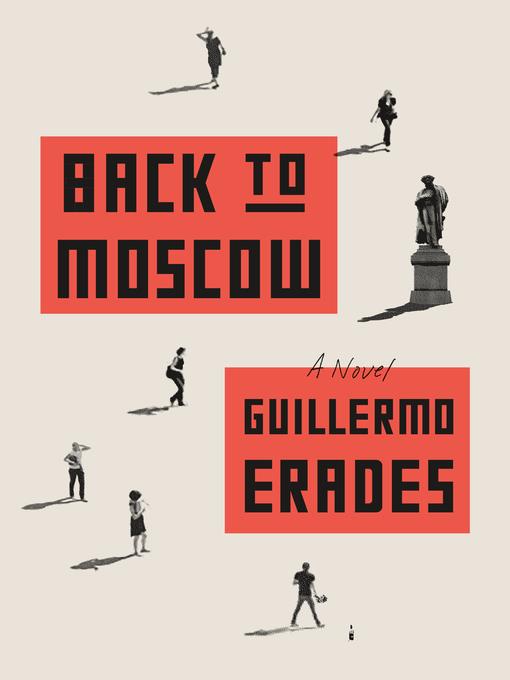
Back to Moscow
A Novel
کتاب های مرتبط
- اطلاعات
- نقد و بررسی
- دیدگاه کاربران
نقد و بررسی

February 22, 2016
Russia’s capital is the most dynamic character in Erades’s boozy bildungsroman. Fresh from a college heartbreak in Amsterdam, the 20-something Martin moves to Moscow in the late 1990s to complete a doctorate at the prestigious Moscow State University. Falling in with an international cohort of bros about town—“the brothers”—and the local women—“dyevs”—they pick up at popular nightclubs and bars, Martin decides that his nightly conquests can double as his doctoral research, as “a complete picture of Russian woman compare with the behavior of heroines in Russian literature.” He begins with Lena, a spiritual, suffering young woman who resents his unwillingness to commit, and he continues on to the business-minded Yulya, schoolgirl Polina, and the traditional, provincial Tatyana, a recent Siberian transplant who wants nothing more than a quiet family life and offers Martin a chance to retire from the exhausting chase for more sex and better venues. Interspersed with these encounters are Martin’s reflections on Russian classics, from Chekhov’s Three Sisters to Pushkin’s Eugene Onegin. The tragic resolution feels rushed, but readers will appreciate the texture and detail Erades gives to Moscow.

March 1, 2016
A coming-of-age novel set in Moscow, Erades' debut plays with tropes of student life, literary devotion, and travel. Oh, to be a young student in love in Moscow, where the girls are angelic and the air smells of...what's that? Gun powder? Petrol? Vomit? The Moscow that Martin has come looking for doesn't quite exist anymore. A lover of literature--though also a young man who fakes his way through a lot of reading--he romanticizes an old-world Russian glamour, but in his case, he mostly just falls from bar to bar, bounces from romance to romance. Erades smartly breaks his novel into sections that begin with a description of a famous woman from Russian literature, and these literary women echo the "real" women Martin meets--and is largely unable to understand as human beings, not just figures ripped from pages. Yes, Martin may be playing the role of intellectual, but often these relationships devolve into...well, how would Martin put it? "Fuck you." (Would Chekhov have said the same?) Martin has a lot of growing up to do, but Erades is always mature, even when his protagonist isn't, which makes the novel feel different from Fitzgerald's This Side of Paradise or other coming-of-age stories written while the authors themselves were coming of age. By setting this book in Russia, Erades blunts some of his character's narcissism: there's always the shadow of history to contend with. "I thought how different my Moscow was from Chekhov's Moscow," Martin muses, going on to describe the "enormous amalgam of buildings and squares and wide avenues." The novel feels a bit like such an amalgam too, and the worst you could say about it is that it's untidy, too unruly, too desultory. But then again, Erades' structure mimics the movement of Martin through the city, through his life--always yearning yet not always heading in the right direction. An appealingly chaotic--if familiar--look at the inner life of a young "intellectual."
COPYRIGHT(2016) Kirkus Reviews, ALL RIGHTS RESERVED.

March 1, 2016
In 1999, Moscow was a tumultuous place, where some enjoyed new fortunes and sushi while others sold onions in the Metro to survive. Young Martin, stuck in Amsterdam without much direction, enrolls at an elite Moscow school as a student of Russian language and literature. Soon, he falls in with a gang of expats and joins them in nightly carousing at the hottest clubs. With a well-paying side job, he moves to a cozy apartment. To support his studies of the legendary heroines of the Russian classics, he keeps a journal to describe the women he meets: "It's not far, let's have some tea." Like a Pied Piper of sex, he draws them in to compare their feelings and reactions to those of such notables as the heroine of Leo Tolstoy's Anna Karenina and Natasha of War and Peace. To help the reader, Erades supplies apt summaries of these fictional characters' anguished stories. As a Westerner, Martin seeks happiness, but his ladies--19th century or modern--teach him that happiness is but another path to suffering. VERDICT With hints of Anthony Burgess's A Clockwork Orange, notes of Gary Shteyngart, and a shadow of Masha Gessen, Erades's first novel is part frothy concoction and part deadly hemlock. As confident as a reality TV show, the story begs to be read in one sitting.--Barbara Conaty, Falls Church, VA
Copyright 2016 Library Journal, LLC Used with permission.

























دیدگاه کاربران